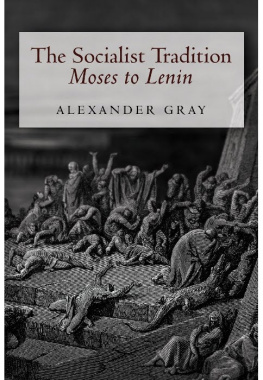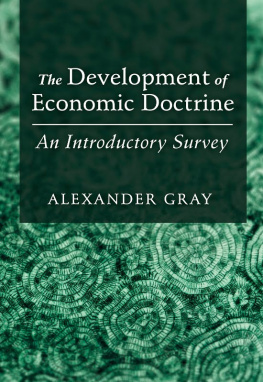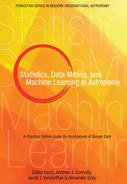THE SOCIALIST TRADITION
MOSES TO LENIN
LONGMANS, GREEN AND CO. LTD.
OF PATERNOSTER ROW
43 ALBERT DRIVE, LONDON, S.W. 19
NICOL ROAD, BOMBAY
17 CHITTARANJAN AVENUE, CALCUTTA
36A MOUNT ROAD, MADRAS
LONGMANS, GREEN AND CO.
55 FIFTH AVENUE, NEW YORK 3
LONGMANS, GREEN AND CO.
215 VICTORIA STREET, TORONTO I
First Published 1946
CODE NUMBER: 15631
Printed in England at THE BALLANTYNE PRESS
SPOTTISWOODE, BALLANTYNE & Co. LTD.
Colchester, London & Eton
PREFACE
IT is a chastening thought that some parts of this book have had an ante-natal existence of approximately twenty-two years. When I began the final stage of reducing to writing an unwritten book, I had in mind the production of what should be, in size and otherwise, a companion volume to The Development of Economic Doctrine, which apparently has been found to serve a certain purpose in the education of the young economist. Despite my good intentions, however, it has refused to be compressed; and in the end it does not fall far short of attaining twice the modest dimensions originally planned. Possibly the socialists, being in the main dissentients, rebels, and prophets, are a more interesting lot than their orthodox and respectable cousins, the economists.
I make no apology for writing this book. It may not be the book which the general reader requires as an introduction to the development of socialist thought, but that at the present moment he does require a book on the subject is beyond all question. Kirkup's History of Socialism dates from 1892; and since then the literature on the subject has been astonishingly meagre, andas it may appear to manygrossly disfigured by prejudice on one side or the other. It ought to be possible to write of Socialism without the underlying assumption that socialists alone are right and righteous; that they alone are the true crusaders against the powers of darkness. Equally, of course, it ought to be possible to write of Socialism without assuming that all socialists are fundamentally dishonest, and that Socialism attracts exclusively the world's incompetents and the world's failures. And of this second view, there are also some glaring examples.
Not that any one in these matters can be expected to write without bias: if such a miracle were possible, the result would probably not be worth reading. There is, however, an obvious duty resting on an expositor to try to understand a point of view, even when he disagrees with it. In the present case, my biassome may say my prejudiceis doubtless sufficiently apparent. I shall be told that I am not sympathetic to Marx and the Marxian tradition. In a Preface an author, having rigorously eschewed the First Person Singular throughout eighteen chapters, may be allowed to talk somewhat more informally to his readers; and accordingly I am prepared to acknowledge that I do not like Marx, and that I do not like Lassalle; just as further back I do not like Rousseau. And though one may admit on high principle that one ought not to allow a small matter of likes and dislikes to influence judgment, those of us who are honest with ourselves will admit that in general it does for all that! It is difficult to imagine any normal person wishing to meet Marx for a third time. Further, if in the intimacy of a Preface I may continue to be indiscreet, Marx irritates me because in the last generation he has so successfully led so many of the intellectuals up the garden path, where at great length they discuss What Marx Really Meant, and say things which would astonish you, as they would certainly have astonished Marx, could he have overheard them discoursing in the garden-house. It is greatly to his credit that Marx, so it is recorded, protested on one occasion that he was not a Marxian. Mr. E. H. Carr, who almost alone in the present generation writes of Marx with balance, comments on the attitude of the pseudo-Marxists in this matter, and their pathetic faith that if but one plank can be saved from the discredited platform of Marxism, all will be well. It is an unedifying spectacle. No one would suggest that Marx was consciously dishonest, but a very great deal of intellectual disingenuousness has gone to the explaining (and the explaining-away) of Marx. Accordingly, all things considered, I do not like the company of Marx.
Spiritually, despite, or because of, their absurdities, I am much more at home with Saint-Simon and Fourier. While I would do much to avoid meeting Marxfor this Diotrephes of the socialist church would merely bark at me in his hot displeasureI should greatly appreciate a long evening with Fourier in a quiet hostelry; and, if the bar were not too crowded, I believe I could prevail upon him to give his marvellous impersonation of a fox or of a robin or a giraffe, with copious comments on the qualities each of them symbolised. It was a performance which he gave only when his company was entirely congenial.
While I am thus prepared to acknowledge that I have my likes and dislikes among the team here assembled, and while this may have made me in some cases more sympathetic than elsewhere, I do not think that I have anywhere been unfair. At least, within the space available, I have tried to allow my witnesses to say all that they have to say, and to say it in their own words. As a final contribution to impartiality, I have, after searching my heart, confessed herewith that, should we all hereafter forgather in an Elysium, devised by Mr. Eric Linklater, it is only with Marx, Lassalle and Rousseau that I shall hope to avoid being on visiting terms. Having warned the reader of this, my possible bias, he may make the desired correction in the other sense.
The only practical reparation an author can make for writing a book twice the length he had intended is to indicate what parts the reader-in-a-hurry may skip. While, officially, I am bound to say that each chapter contributes something to a comprehension of all the others, in fact most of the chapters are reasonably self-contained, and any one may therefore read the portion in which he is interested. The reader who is exclusively concerned with the problems of Socialism to-day may be tempted to begin at Chapter 12 with Marx; but I would plead with him (unless he is very pressed) to go further back; we do not in this country know enough about the Fathers of Socialism (so-called), and on the human side they are much more interesting than the children they begat. I would therefore suggest that the hurried reader, after running through the Prologue which gives the framework, should begin at Chapter 5, with William Godwin. He might omit Chapter 11, unless, merely for the sake of sampling, he elects to read the sections on two of the English pre-Marxians (let us suggest Hall and Gray). In Chapter 12 he might, if he gnaws at the main joint, omit Lassalle and Rodbertus. In Chapter 13 he could restrict himself to Bakunin, and in Chapter 14 he might prove his insularity by leaving Bernstein aside. The concluding chapter, as it merely contains disconnected and irresponsible comments by the author, may also be neglected by those who seek a shortened course.
I am under great obligations to many librarians who have magnanimously allowed books to go out of their immediate care; perhaps I may be allowed to acknowledge in particular the help received from the Custodians of the Libraries of the Universities of Edinburgh and Aberdeen. To my son, John Gray, I am indebted for assistance in the tasks of proof-reading and of the preparation of the Index.
ALEXANDER GRAY.
Edinburgh,
September 1944.
THE SOCIALIST TRADITION
MOSES TO LENIN
PROLOGUE AND PLAN
THE purpose of the present volume is to present the outstanding figures in the development of socialist thought, with some estimate of the significance of their several contributions. It does not, it should be observed, aim at being a history of socialist thought: such a task, in its immensity, would probably engage more than the average lifetime of any moderately conscientious student. Nor indeed (though it may savour of heresy) is a history of socialism on a comprehensive scale a primary requirement for the ordinary man, confronted with the problems of to-day. Further, any temptation to be drawn into the history of the socialist movement has, so far as possible, been resisted. It is admittedly a cognate subject; but again, the effort, doubtless incumbent on all of us, to disentangle the confusion of ideas making up the environment in which we live, would not be materially aided by embarking on the vain attempt (for instance) to understand the cross-currents and interrelations among the socialist parties in France in the second half of the nineteenth century. Here we are primarily concerned with ideas, as these ideas have been reflected in the minds of the men who have been most influential in shaping the socialist tradition. As a consequence of this method of approach it is inevitable that many connecting links should be omitted and even some considerable movements ignored. It is suggested, however, with some confidence, that if the ordinary man, who is the bulk of the population, can acquire a knowledge of what Godwin or Proudhon, or Marx or Lenin stood for, he may, without great immediate loss, leave to the academic expert the fascinating pursuit of conjectural sources and hidden influences.














